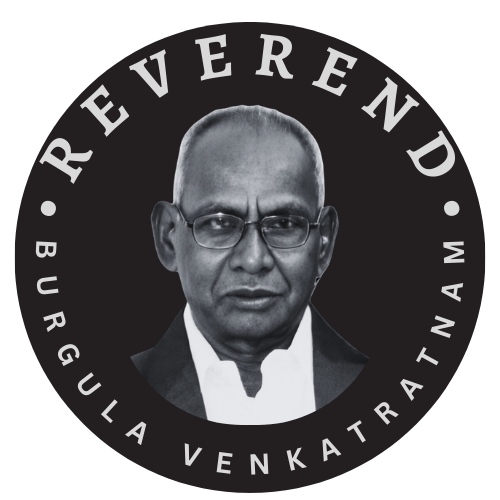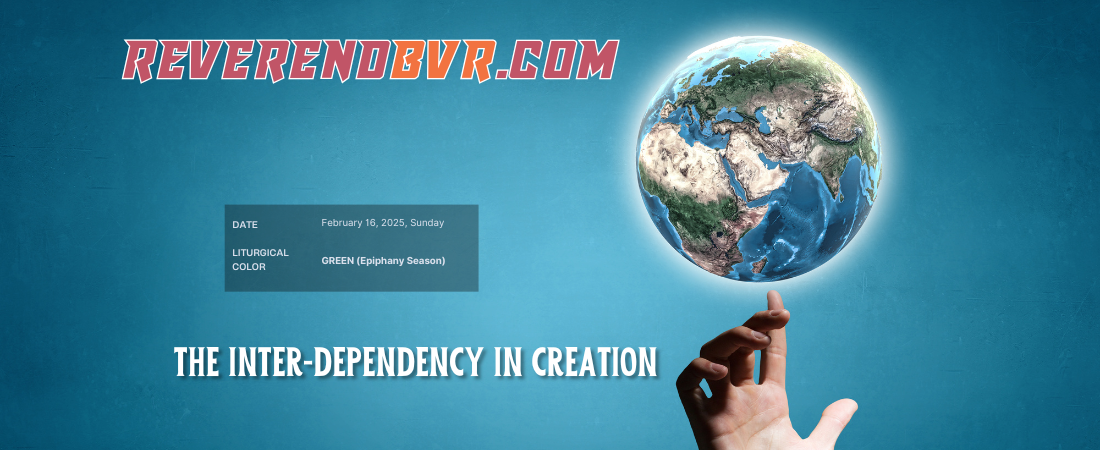Introduction: Understanding Our Connection to Creation
On this Sunday, we are reminded of one of the most beautiful truths embedded in the fabric of the universe: the inter-dependence in creation. Everything in God’s creation is intricately connected, from the plants and animals to human beings and the very earth beneath our feet. As we reflect on the scriptures for today, we explore how we, as part of God’s creation, are not meant to live in isolation but in dependence upon one another and all that God has made. This inter-dependence is not only a physical reality but also a spiritual and moral one, inviting us to live in harmony with each other and the environment.
1. The Beginning of Creation: A Harmonious Design (Genesis 2:1-15)
In Genesis 2:1-15, we are given a powerful account of God’s creation of the world. After God created the heavens and the earth, He placed the first human being, Adam, in the garden to “work it and take care of it” (v. 15). This was not just an isolated act; Adam’s purpose was to tend and care for the land that God had formed.
Notice that in this passage, the creation of man and woman is presented within a context of inter-dependence. The earth needed someone to care for it, and humanity needed the earth to provide sustenance. The trees, rivers, and animals were created not only for beauty but to sustain life. God designed everything to work together, from the soil that nourishes plants to the rain that waters the earth. Human beings were not given dominion over creation in a way that isolates them from it; rather, they were entrusted with the responsibility to care for and nurture what God had made.
Application: We are created to live in relationship with one another and with the earth. Just as Adam’s purpose was tied to the care of creation, our lives are interconnected with the environment, the people around us, and all living things. We are not meant to dominate or exploit creation, but to steward it with wisdom, care, and respect. The well-being of the earth and the well-being of humanity are intertwined.
2. The Wisdom of Creation: The Creator’s Design (Psalm 104:24-35)
Psalm 104 offers a beautiful reflection on the wisdom of God’s creation. The psalmist exclaims, “How many are your works, Lord! In wisdom you made them all; the earth is full of your creatures” (Psalm 104:24). The earth, with all its creatures, is a reflection of God’s intricate design. Each element of creation—from the vast sea teeming with creatures to the mountains that tremble at God’s touch—exists in a balance that speaks to God’s purposeful design.
The psalmist goes on to describe how all creatures look to God for their provision: “When you give it to them, they gather it up; when you open your hand, they are satisfied with good things” (Psalm 104:28). The inter-dependence of creation is clear: the animals, the plants, the rivers—all depend on God to sustain them. But humans are also part of this divine cycle, relying on God’s provision for their every need.
Application: Just as the creatures of the earth depend on God’s provision, we too must recognize our dependence on God and on each other. This dependence is not a weakness but a sign of our interconnectedness with all creation. When we acknowledge our inter-dependence, we are led to live with gratitude, humility, and a sense of responsibility for one another and the world around us.
3. The Body of Christ: Inter-dependence in the Church (Colossians 2:16-23)
In Colossians 2:16-23, Paul writes about the importance of not allowing external rules or human traditions to separate us from the true source of life—Christ. He describes the church as a body, with Christ as the head. The body, Paul notes, is “supported and held together by its ligaments and sinews” (v. 19). This imagery emphasizes that each part of the body is essential for the functioning of the whole.
This passage points to a deeper spiritual truth: just as our physical bodies are inter-dependent on each part working together, so too is the church meant to function in unity. Each person brings their unique gifts and abilities, and we depend on one another to fulfill God’s purpose for us. The church is a place where inter-dependence is not just a concept but a lived reality.
Application: In our lives and within the body of Christ, we must recognize that we are not independent islands. We are part of something greater—a community of believers and a world that is interconnected. Just as we depend on Christ for our spiritual life, we also depend on one another. We are called to live in unity, humility, and love, supporting each other in our shared mission of serving God and caring for His creation.
4. The Parable of the Sower: Cultivating Good Soil (Matthew 13:1-9)
In the Parable of the Sower, Jesus teaches about the importance of cultivating good soil to receive the seed, which represents the Word of God. The different types of soil represent different responses to God’s message. The seed that falls on good soil produces a crop that multiplies many times over. This parable is a vivid picture of how we must cultivate our hearts, our communities, and our environments to receive and nurture God’s blessings.
While the parable is often applied to the personal response to God’s Word, it also speaks to our collective responsibility. Just as the soil depends on water, light, and care to produce a harvest, our relationships and communities depend on love, mutual support, and care for one another to thrive. We are called to be good soil, cultivating environments where God’s Word can take root and produce fruit, not just for ourselves but for others.
Application: We are all called to be stewards of God’s Word and His creation, cultivating good soil in our hearts and in the world around us. This requires cooperation, love, and a recognition that our well-being is tied to the well-being of others. The health of the soil in our hearts is dependent on our relationship with God and our dependence on one another.
Conclusion: Living in Harmony with Creation
The theme of The Inter-dependence in Creation invites us to reflect on how every part of creation—humanity, nature, and the church—depends on each other. From the beginning, God designed the world to be a place of interconnectedness, where each part has a role to play. As we live our lives, we must remember that we are not isolated individuals but part of a greater whole. Our dependence on each other, on the earth, and on God is the foundation of a meaningful and purposeful life.
When we understand our inter-dependence, we are motivated to live with humility, care, and gratitude. We are called to be good stewards of creation, to support one another in love, and to cultivate environments where God’s Word can take root and bear fruit.
Prayer:
Creator God, We thank You for the beautiful and intricate web of creation, where everything is connected, and everything depends on You. We confess that at times, we have lived as though we are independent of the world around us, and we ask for Your forgiveness. Help us to recognize our inter-dependence on one another and on the earth. Teach us to live in harmony with all that You have made, and to be good stewards of the gifts You have entrusted to us. May we love and care for each other, our communities, and our environment, reflecting Your wisdom and love in all we do. In the name of Jesus Christ, who taught us to live in unity and love, Amen.
As you reflect on this message, remember that we are all connected—each person, each creature, and every part of creation has a vital role to play. Let us live with the awareness that our well-being is bound to the well-being of others, and may we be instruments of peace, love, and care in this interconnected world.

